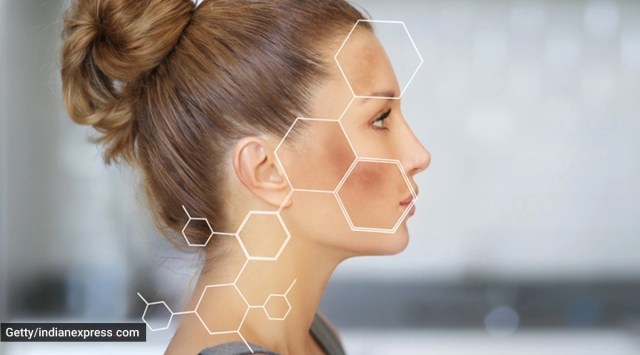📣 For more lifestyle news, click here to join our WhatsApp Channel and also follow us on Instagram
These two nutritional deficiencies can lead to hyperpigmentation
"Deficiencies of vitamins -- that occur due to reduced intake of meat, vegetables, and fresh fruits -- can make your skin appear dull and dark which could further lead to hyperpigmentation," Dr Anup Dhir.
 Chronic conditions, hormonal imbalances, and ageing can also cause hyperpigmentation. (Photo: Getty/Thinkstock)
Chronic conditions, hormonal imbalances, and ageing can also cause hyperpigmentation. (Photo: Getty/Thinkstock)Hyperpigmentation, or the darkening of the skin due to excess melanin production, is among the most common skin issue. But turns out that is it not just a beauty concern, hyperpigmentation also indicates certain nutritional deficiencies. According to Nmami Agarwal, a nutritionist, the skin is the largest organ of the body and is a reflection of one’s overall health. “Whenever something goes wrong within, it reflects on your skin! For instance, hyperpigmentation is when your body is telling you that something is not right inside your body. It could be because of chronic conditions, hormonal imbalances, and as well as aging,” she said in an Instagram video.
“Deficiencies of vitamins — that occur due to reduced intake of meat, vegetables, and fresh fruits — can make your skin appear dull and dark which could further lead to hyperpigmentation,” Dr Anup Dhir, senior skin and cosmetic surgeon at Apollo Hospital Delhi, told indianexpress.com.
As such, Nmami listed the two common deficiencies that can lead to hyperpigmentation.
View this post on Instagram
Folic acid
Folic acid help to maintain the body’s metabolism. It is required for energy production and is also important for the production of red blood cells. “As such, chronic under consumption of folic acid can lead to folic acid anemia which can further cause pale skin and decrease the appearance of skin pigmentation,” she said.
“Elevated levels of homocysteine, an amino acid, may damage the production of cells in your body by way of increasing the occurrence of oxidative stress. This is where the folate in folic acid helps — to break down homocysteine which, in turn, lightens the skin,” informed Dr Anup.
Vitamin B12
Vitamin B12 is required for the production of haemoglobin and also for the breakdown of nutrients for energy within the tissues in the body. Vitamin B12 deficiency can cause unnatural skin darkening and even hyperpigmentation.
“B12 encourages cells to reproduce, evening skin tone, and brightening dull and dark spots. It also helps reduce inflammation and acne,” added Dr Anup.
📣 For more lifestyle news, follow us on Instagram | Twitter | Facebook and don’t miss out on the latest updates!
📣 For more lifestyle news, click here to join our WhatsApp Channel and also follow us on Instagram
- 01
- 02
- 03
- 04
- 05



























